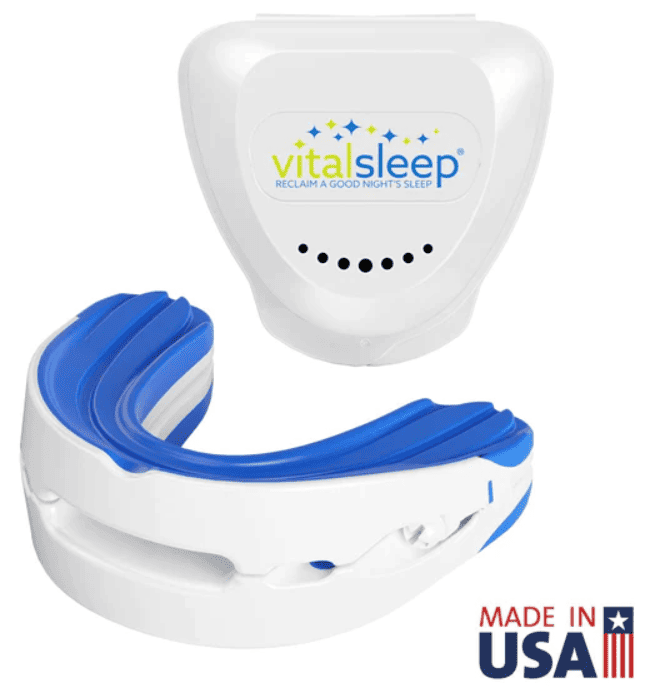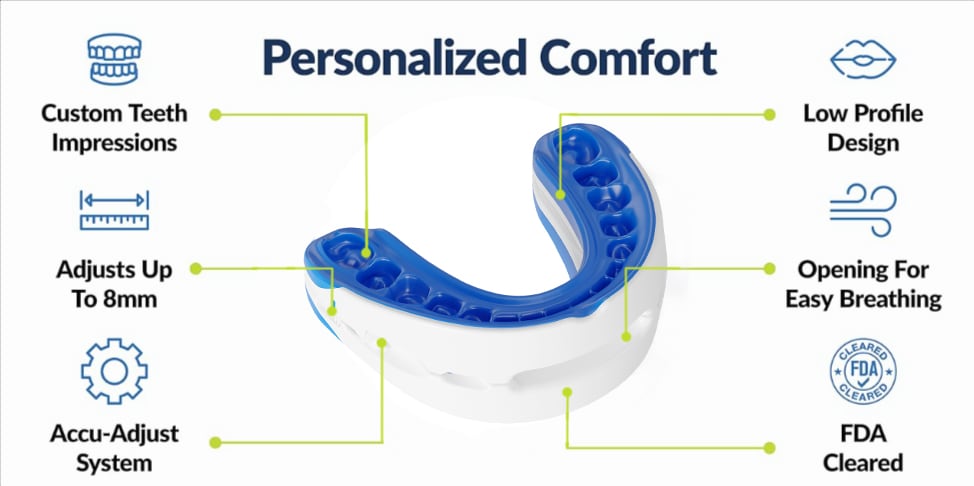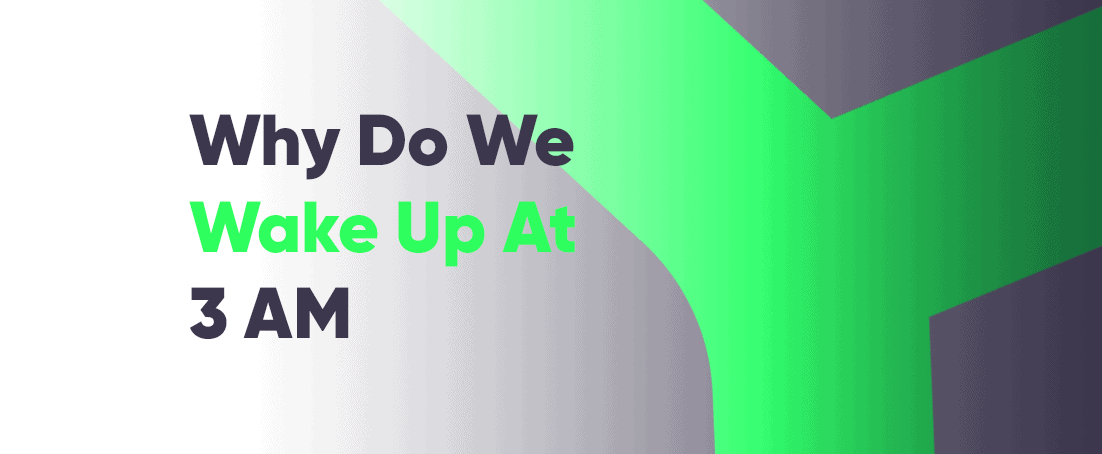You find yourself awake at 3 AM with your sleep cycle disrupted. Insomnia kicks in. Pulled from your dreams into a restless reality, your mind starts to race. Thoughts of the day ahead and tasks you’ll need to accomplish overwhelm you. It all spirals into uncontrollable anxiety.
Studies show it’s one of the most common sleep disruption scenarios, affecting millions worldwide. If you’re reading this, chances are you’ve faced these wake-up cycles. Such insomnia is not just a mere annoyance – it may indicate deeper health issues. I will explore the underlying causes and strategies to combat this elusive sleep thief.
Key Takeaways
- Lifestyle & medical causes: Stress, exercise, sleep apnea, hormones can disrupt sleep.
- Circadian rhythm matters: Avoid screens & irregular sleep schedules before bed.
- Diet & exercise impact sleep: Skip late-night sweets & spicy foods, do early workouts.
- Relaxing bedtime routine: Dim lights, wind down with calming activities.
- Optimize sleep environment: Comfortable bed, cool & dark room, consider mouthpieces.
- Persistent issues? See a doctor: Rule out underlying health problems.
- Natural solutions first: Improve sleep hygiene, manage stress before medication.
Table of Contents:
Why Do You Wake Up at 3 AM? Understanding Night Sleep Cycles
Waking up at 3 AM is deeply rooted in our body’s internal clock. At this hour, certain changes in our circadian rhythms and sleep cycles make us more prone to wakefulness. Here are the most common reasons why unwanted awakenings happen.
- Lighter Sleep Cycles: During certain sleep phases, every sleep disturbance is more likely to keep us awake.
- Exercise Habits: Both lack of and excessive exercise can disrupt sleep.
- Heart Issues: Conditions like hypertension can affect nighttime rest.
- Diet: Sleep interruptions can be caused by fatty or sugary foods and certain beverages – caffeine and alcohol, especially.
- Blood Sugar Levels: Drops in blood sugar can trigger night awakenings.
- Menopause: Hormonal changes can cause sleep problems at night.
- Sleep Apnea: This condition causes temporary breaks in breathing, leading to frequent awake periods.
Circadian Rhythms and Their Role in Shifting Sleep Cycles
Circadian rhythms are 24-hour time cycles of the internal clock, regulating body processes. It controls physiological day and night time cycles, metabolism, and mental or behavioral changes during sleep or wake periods. These rhythms are influenced by external light, which helps synchronize them to the outside time.
A part of the brain called the suprachiasmatic nuclei (SCN) plays a crucial role when you’re shifting sleep cycles. It interacts with various bodily functions, including thermoregulation, hormone release, and metabolism. Many disorders are associated with this part of the brain malfunctioning when creating wake up and sleep cycles.
Maintaining balanced circadian rhythms is vital for our overall health and well-being. Modern lifestyles, often involving artificial lighting and irregular sleep schedules, disrupt these natural rhythms. Our bodies do not have the time to adjust to more light during the summer and less sun during the winter. It leads to nighttime awakenings, low quality or poor sleep, and other issues.
Stress and Anxiety: Key Triggers for Waking Up at Night
Stress and anxiety activate the body’s fight-or-flight response, releasing hormones like cortisol that disrupt sleep patterns. This heightened state of alertness warns the body of risk. If it’s night time, natural body processes snap us out of night’s sleep. Such a waking up mechanism is particularly effective in the early hours of the day.
Stress and anxiety can also lead to a range of disturbances during the night. Insomnia happens due to stress when the mind becomes overly active and unable to relax and fall asleep. Anxiety-caused teeth chattering is one of the most common body disorders challenging our sleep hygiene. These and many other issues collectively contribute to a disrupted sleep cycle.
Medical Insights into Early Morning Wake-Ups
Most biological reasons that make us rise out of bed in the middle of the night are well-researched in the medical literature. Understanding the main ones is crucial for efficiently fighting these disorders with medicine, sleep devices, or a change in sleep habits.
Sleep apnea, a disorder where breathing repeatedly stops and starts during sleep, disrupts the night’s rest due to these breathing irregularities. The brain, detecting reduced oxygen levels, momentarily encourages us to reopen the airways, which usually creates a wake up period during the night. One of the ways to fight this symptom of sleep apnea is by using mouthpieces for sleep apnea as they open the airway keeping the oxygen levels intact.
Restless Legs Syndrome (RLS) is characterized by an uncontrollable urge to move the legs while you sleep at night, typically due to uncomfortable sensations. It often strikes in the evening or during periods of inactivity. During sleep, it causes frequent nighttime awakenings as a person seeks relief through movement.
Insomnia, defined as chronic difficulty in falling or staying asleep, is often rooted in stress, anxiety, or due to medicine use. It disrupts the natural sleep and wake up cycle, leading to frequent awakenings or an inability to fall asleep in the first place. A good routine before going to the bed is helpful, but in severe cases, you should consult a medicine professional.
Gastroesophageal Reflux Disease (GERD) occurs when stomach acid frequently flows back into the tube connecting the mouth and stomach. This backwash, or reflux, irritates the lining of the esophagus. It often worsens at night, causing discomfort which results in the patient staying awake. Finding the best sleeping positions for GERD is an easy and effective remedy for GERD-related body and sleep disorders.
Nocturia, the medical term for excessive urination during the night, disrupts sleep as it necessitates frequent trips to the bathroom. It can result from various causes unrelated to sleep. For example, urinary tract or back infections, bladder disorders, or if you simply drink too much water that day. The best course of action in this case is to watch your water intake before bed and consult a medicine professional.
Pain and Its Role in Disrupting Sleep
Pain is a critical factor in disrupting night sleep and not just for the body. Psychologically, the anticipation of pain or discomfort is akin to psychological pain. It can heighten the anxiety, making it harder to stay asleep or return to sleep after waking up.
In sleep apnea, the pain is not direct, but the discomfort stems from abrupt wake up and a gasping sensation due to obstructed breathing.
GERD causes a sharp, burning pain in the chest and throat as acidic stomach contents irritate the esophagus. Such pain intensifies when we are lying down, thus disrupting sleep.
Nocturia leads to bladder discomfort, compelling frequent bathroom visits that fragment the night’s sleep. Psychologically, the anticipation of pain or discomfort is akin to psychological pain. It can heighten the anxiety, making it harder to stay asleep or return to sleep after you wake up.
Hormonal Changes Impacting Nighttime Rest
Sleep hormones, a sort of chemical messengers in the body, play a significant role in regulating sleep cycles. When the pineal gland gets the signal, melatonin or cortisol is produced. With melatonin, the body prepares for sleep, and with cortisol, it prepares to be awake for the day.
Their production reacts to light exposure. That’s why it’s not recommended to use a phone or a laptop before sleep. But imbalances in sleep hormones can lead to sleep disturbances because of other factors too. Stress, diet, and lifestyle changes can impact sleep hormonal levels, affecting sleep quality.
For women, sleep hormonal fluctuations during the menstrual cycle cause discomfort and pain, making it challenging to achieve restful sleep. These sleep hormonal shifts can lead to insomnia or disrupted sleep patterns, disrupting health in general. That’s why the question of how to sleep better on your period is really important not just for sleep health.
How Daily Habits Influence Sleep Cycles
Our daily habits have a significant impact on our sleep cycles. From what we eat to how we spend our evenings, these routines can either promote restful sleep or contribute to a restless night. Fortunately, every habit that affects sleep quality is within our control.
Diet’s Effect on Waking Up During the Night
Certain foods and beverages can significantly disrupt our sleep. High-sugar items and those with a high glycemic index can cause blood sugar spikes and drops, leading to constant wake up or bad sleep. Fatty foods, due to their longer digestion time, can cause discomfort and indigestion, impacting sleep quality.
Spicy foods can trigger acid reflux, particularly troublesome when consumed close to bedtime. To promote better sleep, it’s advisable to avoid these foods and beverages in the hours leading up to night sleep, especially within three hours of bedtime.
Exercise’s Role in Stabilizing Sleep Patterns
Regular exercise significantly contributes to stabilizing sleep patterns. Engaging in physical activity, particularly in the morning or afternoon, can deepen sleep and reduce the time it takes to fall asleep. However, intense workouts close to bedtime might have the opposite effect.
Exercise just before going to bed leaves the heart racing and the body too energized to relax for sleep. The key lies in timing and moderation. By integrating moderate exercise into our daily routine, ideally, several hours before sleep, we can enhance the quality of sleep and reduce the likelihood of waking up during the night.
The Impact of Alcohol and Caffeine on Sleep
Alcohol and caffeine are two common substances with profound impacts on sleep. Caffeine, a stimulant found in coffee, tea, and some soft drinks, can disrupt sleep patterns if consumed late in the day, as it takes several hours for its effects to wear off. Alcohol, while initially acting as a sedative, can lead to fragmented sleep and decreased sleep quality.
It often causes awakenings in the second half of the night, as the body processes the alcohol. To foster better sleep, it’s advisable to limit caffeine intake in the hours before bedtime and moderate alcohol consumption, particularly close to sleep time.
Strategies for Consistent Sleep Hygiene
Sleep hygiene is a set of practices and habits essential for sleeping well every night. Having good sleep hygiene improves your mood, enhances cognitive functions, and brings you closer to overall better health.
Good sleep hygiene is crucial for preventing unwanted awakenings at night. It helps establish a consistent sleep-wake cycle, enabling the body to enter deeper, more restorative sleep phases. This reduces the likelihood of waking up during the night, thereby ensuring a more uninterrupted and restful sleep.
Creating the Right Environment for Sleep
An optimal sleep environment is key to preventing early awakenings. Investing in a comfortable mattress and pillows can make a significant difference. I have struggled with sleep apnea-induced snoring and related sleep disorders.
A mouthpiece was a savior in my case. It helped to maintain my airways open, so I no longer had periods where I lay wake and out of breath. Here’s the mouthpiece that I used.

Boil-and-bite hybrid | Fits all types of teeth | For people with mild to moderate sleep snoring | 30-day trial period | 30-day money-back guarantee | Free shipping on orders over $50
100% MONEY-BACK GUARANTEE
Visit Vital SleepWhy VitalSleep?

VitalSleep stands out as the optimal mouthguard for combatting sleep apnea-related sleep interruptions. Unlike CPAP machines, which can be cumbersome and uncomfortable, VitalSleep offers a more user-friendly solution.
As I mentioned in my comprehensive VitalSleep mouthpiece review, its customizability is a major advantage. With a boil-and-bite process and the Accu-Adjust System, it is an almost perfect fit tailored to individual needs. The inclusion of a free chin strap addresses the common issue of mouthpieces dislodging during sleep.
Building a Pre-Sleep Routine to Avoid Nighttime Awakenings
Two hours before sleep, dim the lights and avoid screens to signal your brain it’s time to wind down and prepare for bed. One hour prior, engage in a relaxing activity. I like to call them sleep preparation activities as they prepare the body for going to bed. They differ for everyone, but I like reading or meditation the most.
Ten minutes before bed, perform a brief stretching routine to release physical tension. Ensure a cool, dark, and quiet environment in the room with your bed. Purchasing a comfortable mattress and pillows is also crucial as it not only helps to fall asleep but improves your energy during the day.
Position yourself on your back or side, as these positions aid in better breathing. Finally, I insert a mouthpiece to maintain an open airway, as I must reduce the risk of sleep apnea-related awakenings. This last step might not be for everyone, but if you are suffering from sleep apnea or teeth clenching, it is a game-changer.
When Sleep Disorders Need Attention
Getting consistently awake in the early morning can be a red flag for underlying sleep health issues. If you experience persistent fatigue, day time sleepiness, or sleep disturbances accompanied by breathing difficulties, it’s important to consult a doctor.
These symptoms could indicate sleep apnea, hormonal imbalances, or even heart problems. Recognizing these signals and seeking medical advice ensures timely intervention. Treating these potential sleep health risks is much easier when you start just when you notice disrupted sleep patterns.
Sleep Medicine’s Role in Treating Insomnia and Night Awakenings
Sleep medicine, including prescription sedatives and over-the-counter sleep aids, is one of the most effective methods to solve sleep problems. But while medication is effective, it should not be the first solution you fall back to. Some sleep medications can have serious side effects, such as dependency or decreased quality of sleep over time.
Therefore, it’s crucial to consult a doctor before starting any sleep medication for poor sleep. Trying non-pharmacological approaches like improving sleep hygiene, using mouthpieces for sleep apnea, or stress management techniques are often recommended before resorting to medicinal solutions.
Finding Peace in the Wee Hours
Waking up at 3 AM is often a symptom of underlying issues, ranging from lifestyle habits to medical conditions. While factors like diet, exercise, and stress play significant roles, sometimes medical conditions are the culprit. But before resorting to potentially unhealthy or expensive sleep improvement solutions, it’s worth considering simpler, effective options like mouthpieces.
My in-depth guide on choosing the best anti-snore mouthpiece will help you find one that suits your needs without complicating treatments. Embracing such non-invasive methods is a beneficial first step toward achieving peaceful, uninterrupted sleep and overall well-being.

